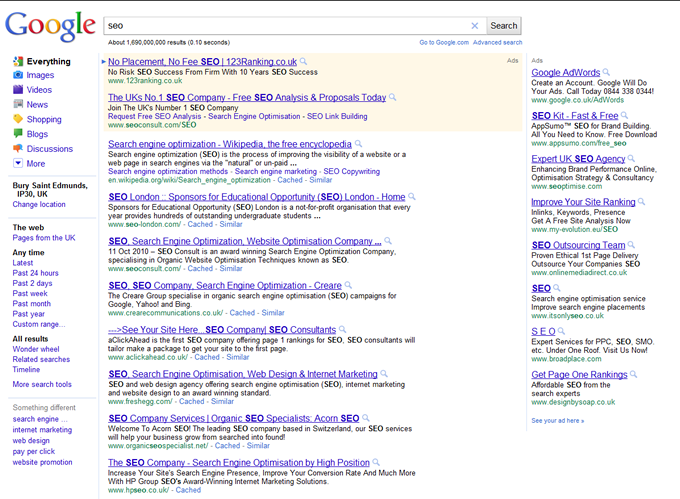For a long time, there was disdain towards PPC from those professing the inbound marketing...
Inbound marketing is a complex methodology that can be difficult to understand. Does this marketing method fit your business? What kind of results can you expect and how much do you have to invest to achieve good results? Here are ten clarifying answers to ten common questions about inbound marketing.
1) What results can I achieve by implementing inbound marketing?
There is no textbook answer to what kind of results a business will achieve as a result of implementing inbound marketing, but luckily there are statistics that can pinpoint what to expect.
In the report State of Inbound 2018, which includes over 6,000 respondents from North America, Europe, Africa, the Middle East, Latin America, Australia and New Zealand, 46% of respondents said inbound marketing gives them higher ROI.
A rule of thumb based on HubSpot's own customer data is that you will get a doubling in traffic after one year of active inbound marketing efforts.
In a study published by MIT (Massachusetts Institute of Technology) in 2017, ROI was investigated using HubSpot's marketing and sales software. The study showed that 79% of customers saw an increase in sales revenue within a year.
2) How long does it take to implement?
When starting with inbound, there is usually a pre-project for about two months, where we identify the customer's buyer’s journey, identify the personas and create a plan for content strategy. During the pre-project, the strategy is also put in place with a focus on goals and tactics, and often this is when content creation begins.
If you do not already have a website, it must also be created and designed. If you have a website, but not a blog, it must be designed and coded to suit your needs. Subsequently, content must be produced. After the two months of pre-project, marketing efforts are run, analysed and improved continuously.
3) Is it suitable for my business?
Inbound marketing does not necessarily suit everyone. Therefore, you should evaluate whether these points are valid for your business:
- Your customers have a longer purchase process
- Everything between a week-long to 1 yearlong buyer’s journey is a good fit for inbound marketing.
- Your goods or services have a specific value
1. It costs money to run inbound marketing
Customers who buy something that costs a bit more than everyday purchases, usually spend more time researching the product or service. It is during this phase that you can help them make the right purchase decision.
2. You have a long-term marketing budget
Inbound marketing is a process that generates results over time. This must be taken into account when you set up your budget – you must plan to run inbound marketing for an extended period of time, preferably 12 months or more.
4) How much will this cost my business?
When you implement inbound marketing, two main areas cost money: the system you choose and the resources you’ll need.
The system we recommend is HubSpot. They offer different packages that you can choose from, depending on the features your business needs. Read more about how much in inbound marketing and HubSpot cost here.
Additionally, there is a need for resources to carry out the actual initiative. This usually involves content production, consultants who take care of day-to-day operations and project management.
To get even more traffic to the website, it's advisable to sponsor content in relevant social media. This must also be budgeted for.
If you choose to hire an agency for the inbound commitment, the cost will vary from agency to agency. First, get an overview of what resources you already have within the business, and then find the agency that has the expertise in the areas where you need help.
5) Can I choose to use only some elements of the methodology, or do I have to use it all?
The methodology works best when you apply all the elements. That being said – it's possible to get results by only implementing some parts.
It may entail having useful content on the website, sharing things on social media or creating personas - semi-fictional personalisations of typical people you want to reach - so that you can always keep in mind who it is you are talking to and trying to attract to the website.
Nevertheless, it is crucial to give prospects a way to move further in the purchase process after visiting your website and reading the content. Otherwise, you will get an increase in website visitors, but will not necessarily get more customers.
6) How soon will I see results?
If you measure the results of how many new customers you get, the results vary based on the type of business you have and how long the buyer’s journey is for your customers – that is, how long your customers spend on deciding before they buy.
However, results are not only measured in terms of customers and money. You can also track how many leads you get and how visible your website is in search engines.
A rule of thumb is that most people will see some results within seven months, while virtually everyone will see good results after about a year.
Read more: How long before I see results from inbound marketing?
7) Do we need a blog?
A vital aspect of the inbound marketing methodology is producing and sharing content.
A corporate blog is crucial for several reasons. It will drive traffic to your website, help you convert traffic to leads, position your business as a thought leader in your industry and it will help you increase your company's digital visibility.
Read more: 4 reasons why you need to start a company blog
You must offer content that answers the questions your prospects have throughout the buyer’s journey so that you can help them find the right solution. Otherwise, you will miss out on many customers because they just can’t find you in search engines.
8) But no one wants to read a blog about us, right?
It's not specifically your business you're going to blog about, but rather specific issues that are common in your industry and how to solve these challenges. The purpose of the blog is not to entertain the average Joe. You should write to those who are actually interested in or curious about your industry.
The main point is to create content that your personas will read to learn more about the challenge they have and how they best can solve it.
What do they want to read about and learn? What are they wondering about? The content of your blog should be helpful to these people.
Still not entirely convinced that blogging is something for your business? B2B marketers that blog get 67% more leads than those who do not blog.
Read more: 6 statistics about blogging you should know
9) Will potential customers bother leaving their personal information in exchange for the content we offer?
People are willing to give up something if they feel that what they get in exchange for their information is worth the trouble. For this reason, valuable content must be provided in exchange for the prospect’s contact details.
Downloadable content is an important part of the inbound methodology precisely because such conversion points are an essential part of lead generation and lead nurturing.
If it offers enough value, most people will be willing to give their name, email address and other relevant information in exchange for it. Just remember that it shouldn’t be a hustle to fill out the form to access the content, stick to 3-4 compulsory fields.
10) Can my business do it ourselves?
As you can see, it takes effort and time to get started – and to run the methodology continuously. You need to consider if your business has enough resources to do it yourselves or if you should collaborate with an agency.
Working with an agency is more often a cheaper solution than hiring people to do the job themselves. A consultant can help you strategise, produce content, conduct market activities in HubSpot, and analyse your results so that actions are always taken to achieve better results.
Read more: How do you get started with inbound marketing today?
Consultants in agencies will also always have updated information about their field of expertise. Neither should you underestimate the value of having someone who can give an objective viewpoint on things.
If you're wondering whether or not inbound marketing is something for you, reach out to us and we will help you find out!




